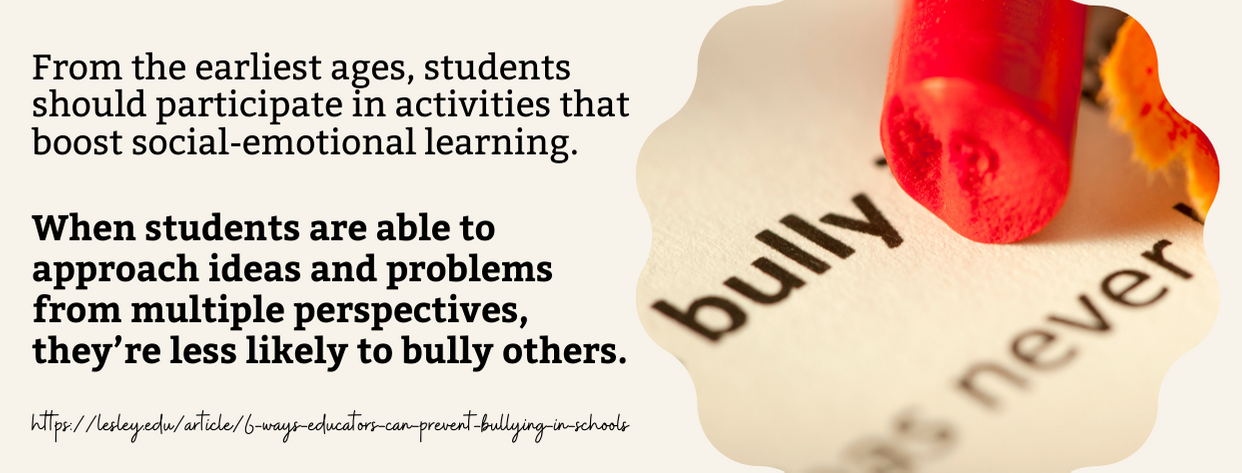Find Your Perfect Business Degree
www.business-management-degree.net is an advertising-supported site. Featured or trusted partner programs and all school search, finder, or match results are for schools that compensate us. This compensation does not influence our school rankings, resource guides, or other editorially-independent information published on this site.
Bullying can have devastating effects on kids. Families need to learn about common bullying behavior, and they should communicate regularly to make sure that students aren’t facing bullying situations alone. If bullying occurs, parents need to act swiftly to prevent long-term effects. Counseling can help kids recover if bullying happens.
Bullying, in its many forms, is a serious issue that can have negative short-term and long-term impact on the lives of everyone involved. It is important to understand the various forms of bullying behavior and the underlying causes, in order to effectively address it. The aim of identifying these behaviors is not to point fingers, but rather to create a safe and respectful environment for everyone.
Through researching different case studies, professionals have been able to identify various characteristics of bullying behavior and patterns of interaction between those involved. These behaviors can be indicative of underlying issues that may need to be addressed, such as power dynamics within the family or school, or a history of physical or mental abuse.
In this article, we will explore the various forms of bullying behavior and the underlying causes in order to gain a better understanding of how to effectively address the issue.
What Is Bullying?

Bullying is aggressive behavior carried out by an individual or a group of people against another person. Bullying behavior is intended to hurt another person with words or physical actions. Behavior is categorized as bullying if it is intentional, repeated, and carried out by a person or people with either more social or physical power than the victim. Bullying causes emotional and/or physical pain.
- What Is Bullying?
- Overview of Bullying
- The Bullying Problem: What You Need to Know
- What Is Bullying?

Types of Bullying
Different types of bullying can happen separately, or more than one type of bullying can happen at the same time. Physical bullying involves harming someone else physically, possibly by punching, kicking, or pushing. Verbal bullying is name-calling or yelling at a victim repeatedly.
Bullying that happens between people in a friendship is relational bullying; this may involve exclusion or spreading rumors. Cyberbullying is a type of bullying that happens on electronic devices such as smartphones or computers.
- Types of Bullying
- The Different Types of Bullying Parents Should Watch For
- Forms of Bullying
- Four Types of Bullying Parents Should Know About
All About Cyberbullying

When a bully uses electronic communication to harass or harm another person, this is cyberbullying. Cyberbullying can be just as devastating as bullying that happens in person. Sometimes cyberbullying happens anonymously since it’s possible to hide identities online. Cyberbullying can have a far-reaching impact thanks to the reach of the Internet. Even strangers can find and see incidences of cyberbullying when content is shared publicly online.
Bullying Prevention
Bullying prevention requires vigilance. Teachers and administrators need to be constantly supervising students and watching for bullying situations. If bullying is suspected, it’s important to intervene immediately. Parents also need to watch and supervise activities to make sure that interactions are positive.
Teach kids that bullying is unacceptable, and urge them to confide in parents, teachers, or friends if a situation arises. Kids also need to know that they should intervene if they ever see bullying happen.
- What Are the Best Ways to Prevent Bullying in Schools?
- How Parents, Teachers, and Kids Can Take Action to Prevent Bullying
- Six Ways Educators Can Prevent Bullying in Schools
- Ten Ways to Help Reduce Bullying in Schools
Who Can Be Affected by Bullying?
National statistics on bullying in America indicate that about 20 percent of all students report some type of bullying. Male students are more likely to be physically bullied than female students, and female students experience relational bullying, such as exclusion and rumors, more often than male students.
Reasons for bullying often focus on physical appearance, race, gender, religion, and/or sexual orientation. Schools with bullying prevention programs are often able to decrease bullying significantly.
Bullying Behavior
Most bullies share common characteristics. Underneath, bullies are afraid and insecure about themselves. Bullies deal with these fears by trying to create fear in others. Bullying behavior usually involves some type of dominance over others. Bullies tend to have quick tempers and an inability to control their impulses. Bullies also have an inability to feel empathy for others, and they don’t tolerate differences in other people well.
Resources for Parents
Parents should explain both sides of bullying so kids understand the positions of both the victim and the aggressor. By communicating, observing kids, asking about friends and peers, and finding out about daily activities, parents can stay tuned into kids’ lives.
Parents should also model healthy habits such as empathy, respect, and kindness. Talk about the proper response to a bullying situation so kids are prepared and know what to do if they are confronted with bullying. If a child reports a bullying situation, ask questions, offer support, and report it to school officials.
If bullying is severe, it may be necessary to consult with a psychology professional for counseling.
- Ten Things Every Parent Can Do to Stop Bullying
- Bullying: What Parents and Families Should Know and Can Do
- What Parents Can Do to Prevent Bullying
- Nine Ways to Stop and Prevent Bullying
Frequently Asked Questions
How should college students handle bullying?
College students should report any incidents of bullying to school administrators or a trusted faculty member. Additionally, they should take steps to protect themselves, such as avoiding areas where bullying occurs and reaching out to trusted friends or family for support.
Furthermore, they should seek to cultivate a campus environment where bullying is not tolerated by talking to student leaders about setting up anti-bullying initiatives and workshops.
Finally, it is crucial that all students should be aware of their rights in responding to any form of bullying, harassment, or discrimination.
Are college help centers or counseling services capable of helping their students when bullying is an issue?
Yes, college help centers or counseling services are able to provide support for students affected by bullying. Counselors are able to provide resources and referrals to outside specialists to assist students in dealing with bullying, as well as provide emotional support and guidance through the difficult situation.
Furthermore, college help centers can provide information and tools to help students create safety plans, build resilience skills, and make connections with helpful resources on and off campus.
Should bullying be ignored or addressed immediately?
It is essential to address any incidents of bullying immediately, as disregarding the issue can lead to more severe consequences. Ignoring bullying or responding with violence can actually make the situation worse and prevent potential victims from seeking help.
It is important for college students to show their support for victims of bullying and take action to prevent it, such as by reporting incidents of bullying to the proper authorities and working to create a campus environment that does not tolerate harassment.
In the case of bullying, authorities such as school administrators or campus security should be notified immediately if the bullying continues or becomes more severe. If the victim feels unsafe, action should be taken as soon as possible.
If the incident is minor or not of an urgent nature, the issue can be handled privately, such as by talking to friends or family members for support and discussing options with college resources.
Can online college students experience cyberbullying?
Yes, online college students can experience cyberbullying. Cyberbullying can take many forms, from hostile comments in conversation threads and across social media to impersonation or “doppelganging,” which is when an anonymous individual or group creates a social media account with the student’s name and contact information, distributing embarrassing or false information.
Online college students should be aware of cyberbullying and how to get help if it occurs.
